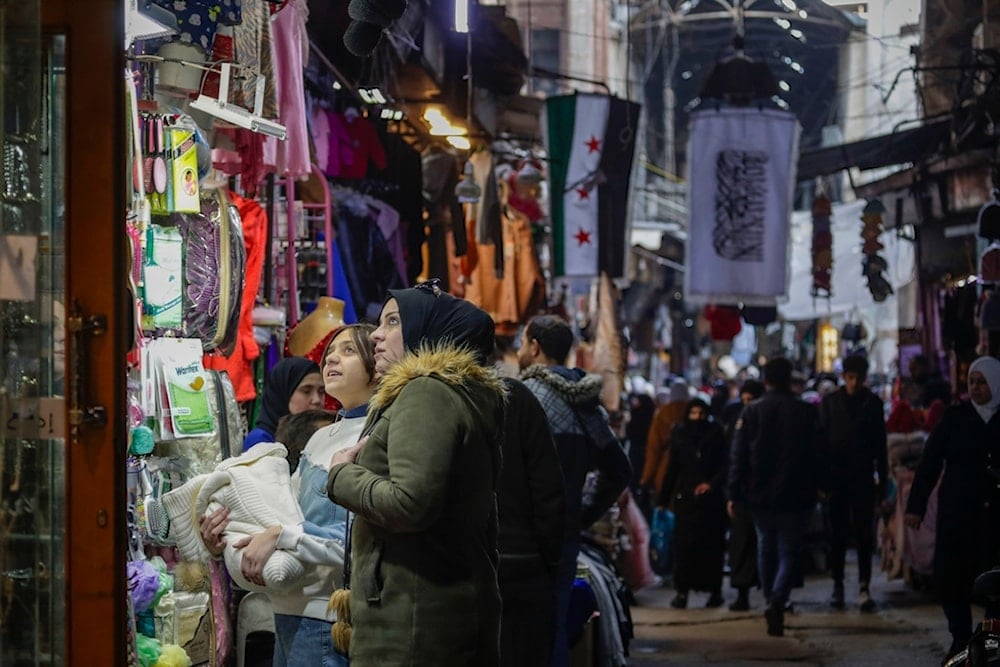Syria to need over 50 years to recover pre-war economy
A UN report warns that Syria's economy, devastated by 14 years of war, will not return to its pre-conflict size before 2080 at current growth rates.
-

Shoppers fill the old city market in Damascus, Syria, Thursday, January 9, 2025. (AP)
The United Nations warned on Thursday that Syria would require more than 50 years to restore its economy to pre-conflict levels if current growth rates persist.
"Fourteen years of conflict in Syria have undone nearly four decades of economic, social, and human capital progress," the UN Development Programme (UNDP) stated in a new report titled The Impact of the Conflict in Syria.
According to the report, Syria’s economy, which has been battered by war, sanctions, and infrastructure devastation, has contracted to less than half of its 2011 size. The study estimates that nine out of ten Syrians live in poverty, while a quarter of the population is unemployed.
"At current growth rates, Syria's economy will not regain its pre-conflict GDP level before 2080," the UNDP said, emphasizing the urgent need for large-scale investment to support economic recovery following the fall of President Bashar al-Assad this year.
The report highlights that Syria’s annual economic growth over the past seven years has averaged just 1.3%. A significant acceleration—an ambitious tenfold increase—would be required over 15 years to bring the economy to where it would have been without the war. A more realistic target, it suggests, would be a 5% annual growth rate over the next 15 years to return the economy to its 2010 size.
Investments needed
Beyond immediate humanitarian aid, the UNDP stressed the necessity of long-term investment in development to achieve economic and social stability.
"Restoring productivity for jobs and poverty relief, revitalizing agriculture for food security, and rebuilding infrastructure for essential services such as healthcare, education, and energy are key to a self-sustaining future, prosperity, and peace," said UNDP Administrator Achim Steiner.
Abdallah Al Dardari, UNDP regional chief for Arab states, outlined a broader strategy, calling for governance reform, economic stabilization, and infrastructure rebuilding to reduce Syria’s reliance on external aid and foster long-term resilience.
As Syria navigates post-war reconstruction, the UN report underscores the magnitude of the economic challenge ahead, requiring sustained international support and structural reforms to rebuild the country’s shattered economy.
Syrian leadership to privatize industry
In a bid to revive Syria's economy, the newly formed government unveiled in January a comprehensive plan to privatize state-owned enterprises and attract both foreign and local investments.
The announcement came from Syrian Foreign Minister Asaad al-Shaibani, who provided an in-depth overview of the reforms during his first interview with international media, published in the Financial Times.
The government aims to prioritize the privatization of industries critical to Syria's economy, including oil, cotton, and furniture production.
Al-Shaibani outlined the administration's vision, which centers on creating a legal framework that will encourage foreign investors while also incentivizing Syrian expatriates to reinvest in the country.

 4 Min Read
4 Min Read









